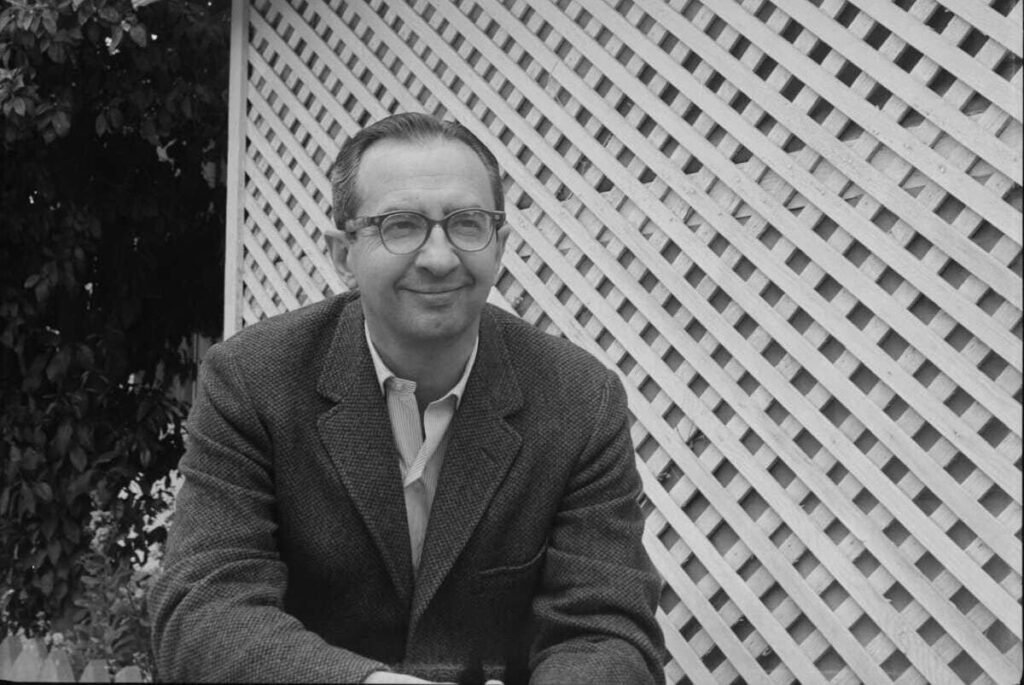A Life of Poetry and Scholarship
John Frederick Nims was an American poet, translator, and scholar who made significant contributions to the world of literature. Born on February 19, 1913, in Zemstvo, Michigan, Nims grew up in a family of modest means and was raised with a strong appreciation for education and the arts.

Early Life and Education
Nims’s early life was marked by a love of language and literature. He was an avid reader and developed a passion for poetry at a young age. He attended the University of Notre Dame, where he earned his Bachelor’s degree in English in 1934. He went on to earn his Master’s degree in English from the University of Chicago in 1936.
Literary Career
Nims’s literary career began in the 1940s, when he started publishing his poetry in various literary journals. His first book of poetry, “Two Cities,” was published in 1947. The book was well-received by critics and established Nims as a talented and innovative poet.
Throughout his career, Nims published numerous collections of poetry, including “The Fragile Craft” (1954), “Knowledge of the Evening” (1960), and “Of Flesh and Bone” (1971). His poetry is characterized by its lyricism, precision, and depth of feeling.
In addition to his poetry, Nims was also a prolific translator. He translated the works of numerous Latin American poets, including Pablo Neruda and Jorge Luis Borges. His translations are highly regarded for their accuracy and nuance.
Scholarship and Teaching
Nims was not only a talented poet and translator, but also a dedicated scholar and teacher. He taught at several universities throughout his career, including the University of Notre Dame, the University of Chicago, and the University of Illinois.
Nims was a renowned expert on the poetry of John Donne and the metaphysical poets. He published several critical studies on these topics, including “The Poetry of John Donne” (1962) and “The Metaphysical Poets” (1965).
Awards and Recognition
Nims received numerous awards and honors for his poetry and scholarship. He was awarded the Prix de Rome in 1953 and the Bollingen Prize in Poetry in 1969. He was also elected to the American Academy of Arts and Letters in 1972.
Personal Life
Nims was married to his wife, Bonnie, for over 50 years. They had two children together and lived a quiet, unassuming life in Chicago.
Nims was known for his humility and generosity. He was a beloved teacher and mentor, and his students and colleagues admired him for his kindness, wisdom, and dedication to his craft.
Legacy
John Frederick Nims’s legacy is one of poetry, scholarship, and service. He left behind a body of work that is both beautiful and profound, and his contributions to the world of literature are immeasurable. His poetry continues to be widely read and studied, and his translations and critical studies remain essential resources for scholars and students alike.
Nims’s legacy extends beyond his own work, however. He was a devoted teacher and mentor, and his influence can be seen in the work of numerous poets and scholars who were inspired by his example.
Influence and Impact
Nims’s poetry and scholarship have had a profound impact on the world of literature. His poetry is known for its lyricism and precision, and has been praised by critics and readers alike.
His translations of Latin American poetry have helped to introduce American readers to the work of important poets such as Pablo Neruda and Jorge Luis Borges.
Nims’s critical studies on John Donne and the metaphysical poets have helped to establish these figures as central to the English literary canon.
Later Life and Death
Nims died on January 13, 1999, at the age of 85. He left behind a legacy of poetry, scholarship, and service that continues to inspire and influence readers and writers today.
Conclusion
John Frederick Nims was a poet, translator, and scholar who made significant contributions to the world of literature. His poetry is known for its lyricism and precision, and his translations and critical studies remain essential resources for scholars and students alike. His legacy is one of poetry, scholarship, and service, and he will be remembered as a devoted teacher, mentor, and advocate for the arts.